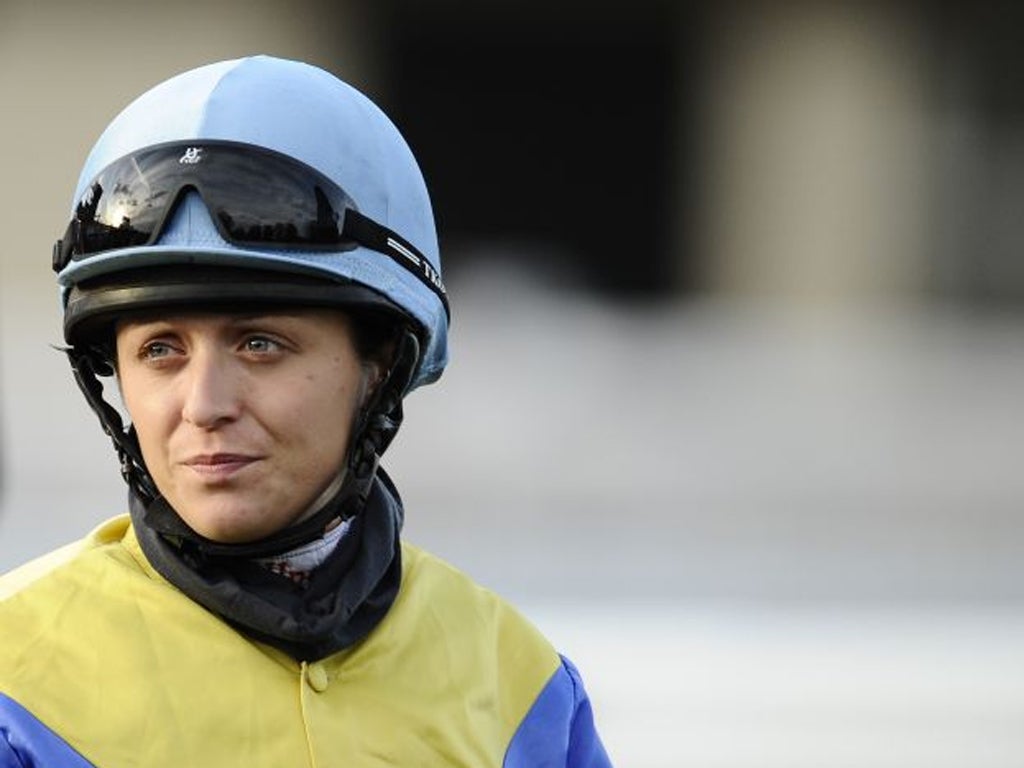Chris McGrath: BHA pulls trigger – despite no smoking gun
The judgement on Milczarek proceeds to a last, giddy leap of logic about possible reward

Any purgation will bring its discomforts, and British racing's latest corruption scandal may well renew more lazy assumptions about skulduggery than might have been dispersed by the vigilance that brought it to light. Yet the British Horseracing Authority makes a better point than it may realise in claiming that the disqualification of four jockeys reproves any tendency to complacency.
It must be remembered that an independent panel on Wednesday handed out penalties to 11 individuals, out of 13 charged by the BHA in connection with 10 races in 2009. Perusing their verdicts, it is not difficult to agree that genuine iniquities had been uncovered by BHA investigators. At the same time, however, you can see again how self-indulgent a standard of proof is nowadays applied to these cases.
Two of the four jockeys found guilty of a fraudulent conspiracy with two owners, Maurice Sines and James Crickmore, radically compounded the suspicions against them. Paul Doe and Greg Fairley had both quit riding between publication of the charges and the hearing, which they failed to attend. Moreover both were adjudged, on the evidence of their riding, to have abetted "lay" bets by deliberately restraining mounts. This represented the most disgraceful of all the charges and duly earned the pair a 12-year ban.
Doe and Fairley permitted some pretty strong inferences to be drawn from their own conduct. But it seems less obvious how Kirsty Milczarek and Jimmy Quinn can be baldly stated to have shared in a conspiracy, never mind that the former had passed on inside information for "payment".
Quinn was found to have been little more than naïve, and his suspension confined to six months. Milczarek, however, was disqualified for two years, and launched an immediate appeal.
Both were absolved of charges relating to their performance in races under suspicion. But inconsistencies in Milczarek's evidence – concerning telephone calls made by Crickmore, an acquaintance of her partner at the time, Kieren Fallon – persuaded the panel, in conjunction with big bets laid against her mount, that Milczarek must have indicated her "willingness to take steps to hinder" Obe Gold at Lingfield in August 2009. The judgement then proceeds to one last, fairly giddy leap of logic: "Though there was no evidence of overt reward for this, the panel concluded that she would not have done this without payment."
This is a recurring theme in the sport's traumatic journey through the new betting landscape, where it is easier not only to profit from the defeat of a particular horse but also to identify those who have done so.
In common with equivalent fields of regulation, the standard of proof must match that in civil proceedings – based on the "balance of probabilities" rather than, as in criminal cases, proof "beyond reasonable doubt". Given how rarely their decisions reach judicial review, however, sporting regulators must surely ensure that "the balance of probabilities" never becomes too perilously lax a standard.
Any intelligent racing professional could immediately see that the prosecution had grievously misunderstood the significance of its evidence in the notorious race-fixing trial at the Old Bailey in 2007. It soon became transparent the facts could never support a conviction "beyond reasonable doubt" and the judge duly threw out the case against Fallon and several others. Prima facie, at least, there would seem to be parallels in the nature of the charges in this instance – and the consequences for the accused, in terms of livelihoods if not liberty, perhaps warrant a more proximate level of proof.
At least the justice system reliably did its work, at the Old Bailey. And this time, equally, the disciplinary panel has clearly done its utmost to assess the BHA claims objectively. It drew huge distinctions between Doe and Fairley on the one hand, and Quinn on the other – not to mention Paul Fitzsimons, wholly absolved of charges that can only have compromised his early prospects in his new career as a trainer.
He has no redress, of course. And it is the genuinely bad apples, not the orchard keeper, who must take most blame for his predicament. But while the sport unanimously applauds their exposure and banishment, it should be concerned that nobody is required to produce anything remotely resembling a smoking gun. In fact, you sometimes wonder whether the regulators are disposed to settle for "no smoke without fire".
In recent years, the BHA has shown an absurd reverence for the significance of "inside information". That said, however, the net result is that even the most desperate jockeys must surely resist the folly of taking any kind of chance. If they look at this case properly, in fact, they will fully deserve any punishment – for sheer stupidity.
Turf account
Chris McGrath's Nap
Our Father (3.05 Ascot) Shaped well in novice hurdles last season, travelling strongly, and looks on a fair mark for his first handicap.
Next Best
Rocky Creek (12.45 Ascot) Guesswork required against other improvers but sure to repay support sooner rather than later after a fine start for this yard at Exeter.
Where the money's going
Abergavenny is 8-1 from 10-1 with the sponsors for the Ladbroke Hurdle at Ascot tomorrow, while Betfred have laid Raya Star from 12-1 to 10-1.
Join our commenting forum
Join thought-provoking conversations, follow other Independent readers and see their replies
Comments
Bookmark popover
Removed from bookmarks